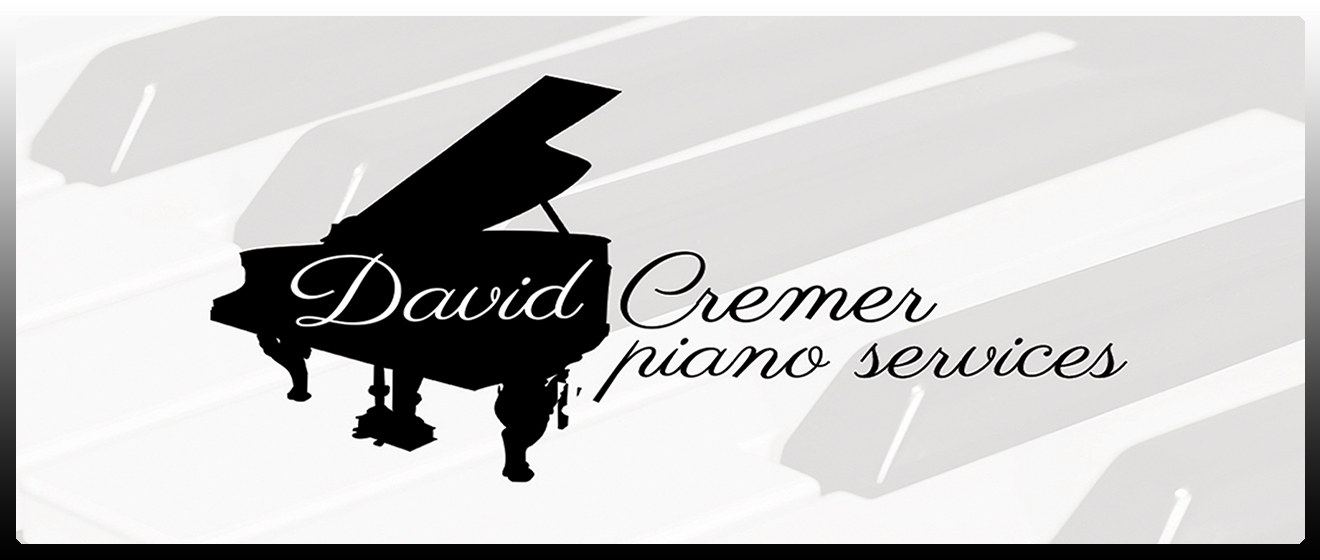FAQs
THE FIVE MOST FREQUENTLY ASKED QUESTIONS REGARDING PIANO TUNING
Q: Why is it important to have my piano tuned regularly?
A: A piano is a musical instrument which is comprised mainly of wood, and as such is subject to temperature and humidity changes which cause the wood to expand or contract.
Q: How often should my piano be tuned?
A: There are a number of factors which can determine the frequency of tunings, such as amount of playing per day, age of piano, whether a room has central heating or air conditioning on for most of the time, depending on the season, and whether the piano is under a window with direct sunlight.
Q: Should I employ the services of a tuner who tunes by ear or by use of electronic device?
A: Aural tuning is far preferable to the electronic variety, and David Cremer Piano Services will only ever tune aurally. An electronic tuning device will work well around the centre of the piano, but it is negotiable as to its accuracy in the high treble and the lower bass end of the instrument.
Q: How would I know whether a tuner is good or bad just by talking to him?
A: A good tuner is someone who has been professionally trained, and who has worked for a reputable piano company prior to their move to working freelance. David Cremer Piano Services have had professional training and experience from Steinway and Blüthner Pianos in London, and are recognized as professional tuners by Kawai Australia, and the Samick Corporation. If a tuner appears to be inexperienced by talking to them then it is better to give them a wide berth.
Q: What is the ideal time frame between tunings of my piano?
A: Again, this can depend upon the amount of playing. If a child is playing ‘Fur Elise’ and ‘Heart and Soul’ for half an hour per day, then once a year should suffice. If the child is a prodigious talent, playing Liszt or Prokofiev for at least an hour per day then twice or three times per year is more advisable. David Cremer Piano Services will offer the best advice on how often the customer’s piano should be tuned.
THE FIVE MOST FREQUENTLY ASKED QUESTIONS REGARDING
MAINTENANCE OF MY PIANO
Q: How often should my piano be regulated?
A: A David Cremer Piano Services tuner will check the regulation of the piano action when they are called out to tune the piano and make adjustments to notes that don’t play as smoothly as others. Sometimes if a piano action is uneven throughout then a full regulation may be called for. This is not a particularly cheap operation, but in the long run it will certainly improve the playability of the piano for years to come.
Q: What causes the notes on my piano to get stuck?
A: The hammers and the jacks on a grand piano, or the hammers and whippens on an upright, move back and forth on centre pins, and if humidity brings moisture to these then the bushings swell up causing the notes to seize up. As the piano keys themselves also move up and down, and are likewise bushed, the bushings can swell up with moisture and are also likely to remain in a down position. David Cremer Piano Services will maintain the playability of your piano with each subsequent visit.
Q: How important is voicing?
A: Voicing is a matter of taste, depending upon whether or not the player likes a bright or a more mellow tone. The voicing method involves pricking of the hammers with a voicing tool, containing fine needles. A professional piano tuner from David Cremer Piano Services will consult with the customer before proceeding with a voicing of their instrument, as over voicing can lead to a dull sound which would take a long time to recover from.
Q: How often should my piano be restrung and have hammers and damper felts replaced?
A: Once again, this depends on the frequency of use that the piano receives. Ideally a period of forty years between complete overhauls, including restringing and hammer and damper replacement, would guarantee that the piano is in pristine condition. Some older pianos, however, would only be marginally improved by such work involved and therefore it would not be cost-effective for the customer to proceed with such work, as this procedure is certainly a very expensive one. David Cremer Piano Services will offer the best advice regarding piano restoration, and will aim for the most cost-effective result while never compromising on the standards of the work involved.
Q: My piano looks tired and worn out, how can it look like a new piano again?
A: David Cremer Piano Services use the professional service of casework specialists who will either French polish or relacquer the instrument, depending upon the piano involved. The piano sound is very important, but then so is the look of the instrument, and this is understood by us.



